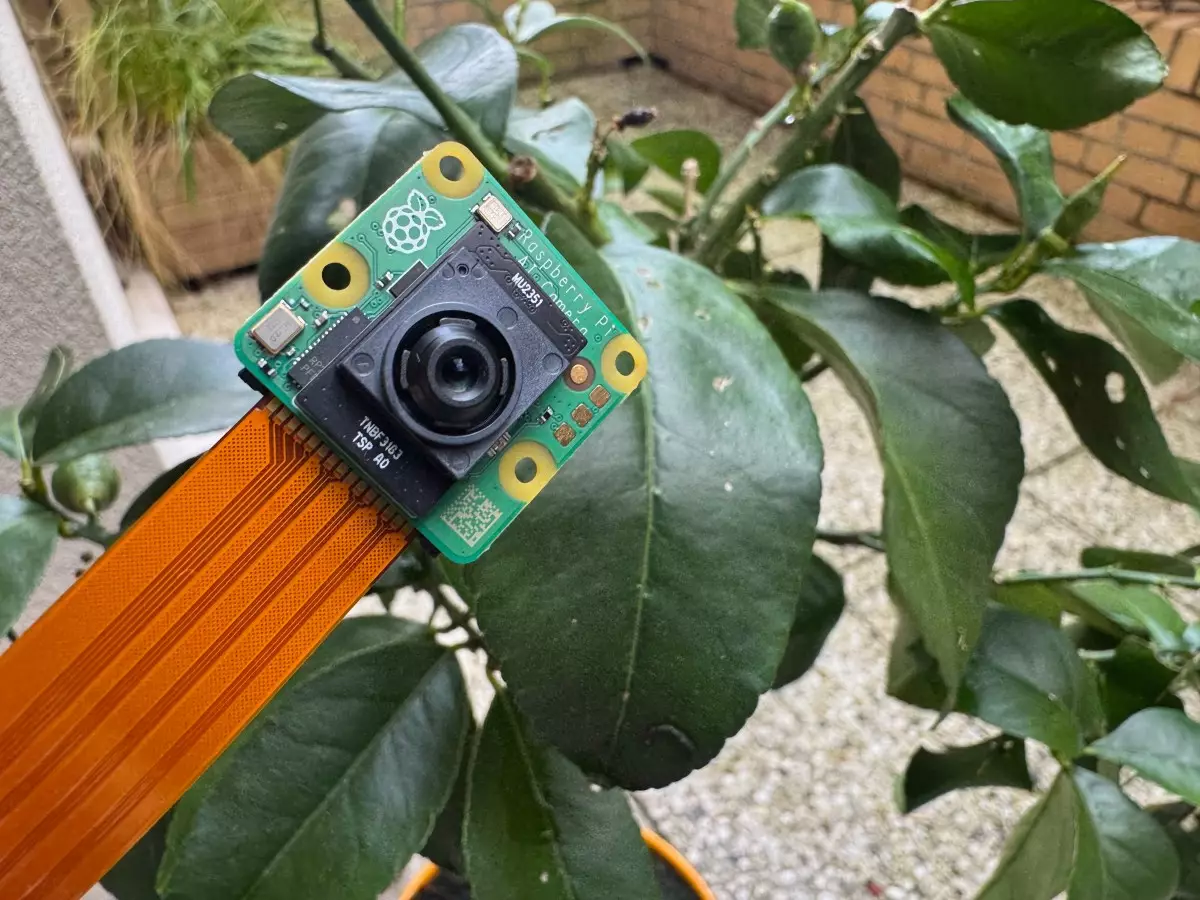Raspberry Pi, renowned for making affordable single-board computers, has unveiled an innovative add-on that’s set to expand its usability in various fields. As we delve into 2024, the integration of artificial intelligence (AI) takes center stage with the release of the Raspberry Pi AI Camera. Priced at $70, this novel image-sensor technology embeds on-board AI processing, showcasing Raspberry Pi’s commitment to enhancing its product offerings while maintaining cost-effectiveness.
The Raspberry Pi AI Camera leverages the Sony IMX500 image sensor combined with the company’s proprietary RP2040 microcontroller chip. This union of technology is a testament to the Raspberry Pi philosophy of producing inexpensive yet effective solutions. While it is important to note that this product isn’t intended to compete with advanced systems employing Nvidia GPUs for complex machine learning tasks, the appeal lies in its ability to process visual data using commonly available neural network models.
Unlike traditional image-capture devices that may necessitate additional processing power, the onboard capabilities of this camera mean that tasks such as image recognition do not burden the host Raspberry Pi. This efficient processing setup allows users to run parallel operations seamlessly without the need for supplementary accelerators, thereby enhancing the overall functionality of the device.
Raspberry Pi’s new AI Camera complements the existing Camera Module 3, which features a more straightforward 12-megapixel Sony IMX708 sensor. The earlier module is targeted primarily towards hobbyists and DIY tech enthusiasts, while the AI Camera introduces a sophisticated layer of on-device intelligent processing. With a footprint analogous to that of its predecessor, the AI Camera is slightly bulkier, a reflection of its enhanced capabilities.
Interestingly, while the Camera Module 3 has established a reliable market presence at about $25, the AI variant’s advanced functionalities present a compelling proposition for users seeking to integrate AI into their projects without excessive budget constraints. This accessibility is crucial for developers who are looking to bring their innovative ideas to life in fields such as robotics, IoT applications, and beyond.
The Raspberry Pi project initially attracted hobbyists, but its appeal has shifted significantly towards industrial applications. The company recently disclosed that a staggering 72% of its sales in the embedded and industrial sectors signifies the growing reliance of companies on Raspberry Pi devices for their operational needs.
The AI Camera’s targeted applications could range widely, from smart city infrastructure—such as monitoring parking availability and traffic flow—to automated manufacturing processes that utilize real-time object detection for quality control. By utilizing this add-on, businesses can capitalize on cost-effective AI solutions that are easy to scale, addressing the complexities of production demands post-COVID.
Furthermore, the stability offered by the Raspberry Pi brand provides companies with assurance of reliability and availability, making it an attractive choice for industries that depend on just-in-time production methodologies.
Understanding the importance of product longevity, Raspberry Pi has assured customers that the AI Camera will remain in production until at least January 2028. This decisive commitment supports the notion of sustained investment for businesses integrating these technologies into their own processes, emphasizing both reliability and value.
As industries continue to embrace digital transformation, the introduction of such affordable solutions that incorporate AI processing could play a significant role in driving innovative applications. Moreover, as businesses prioritize efficient resource allocation and production scalability, the Raspberry Pi AI Camera stands poised to become a staple in many operational arsenals.
The Raspberry Pi AI Camera is more than just a cost-effective hardware solution; it represents a pivotal step in bridging traditional tech with cutting-edge AI capabilities at an accessible price point. By staying true to its roots while evolving with the demands of today’s market, Raspberry Pi is not only redefining its role within the tech landscape but is also setting a precedent for the future of affordable AI technology. As we look ahead, the implications of such innovations signal exciting opportunities across various industries, nurturing an environment ripe for growth and creativity.

